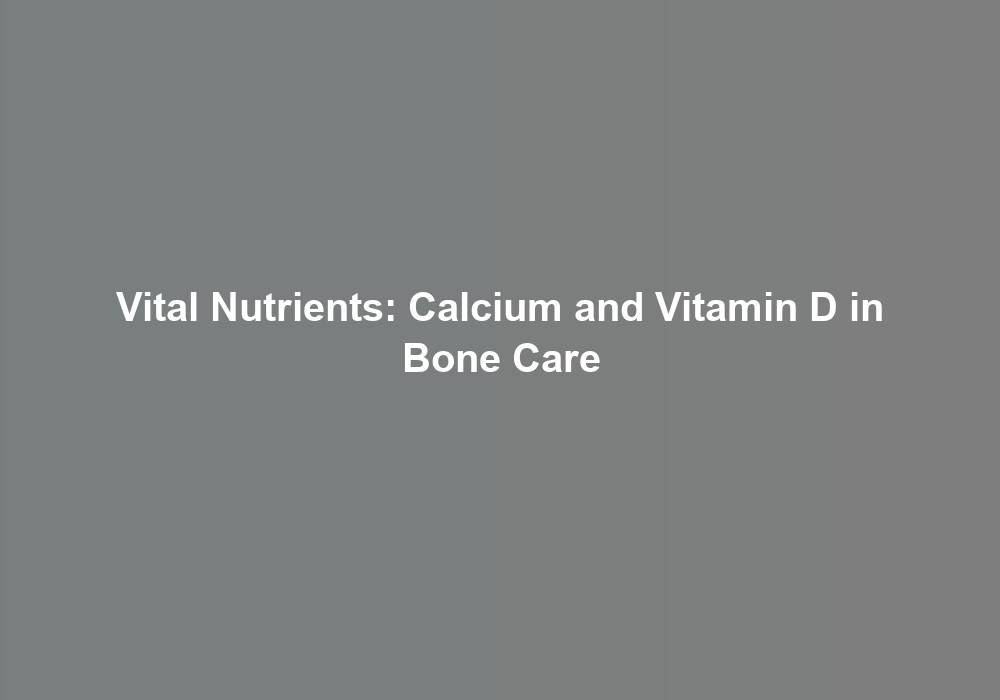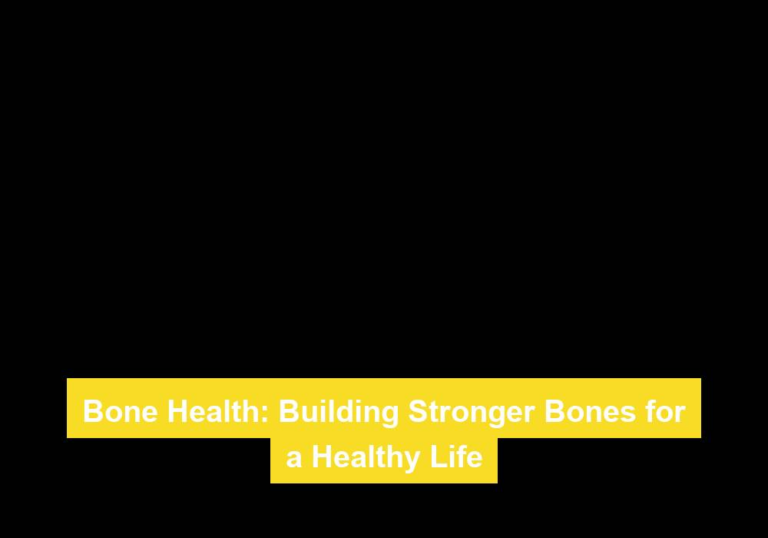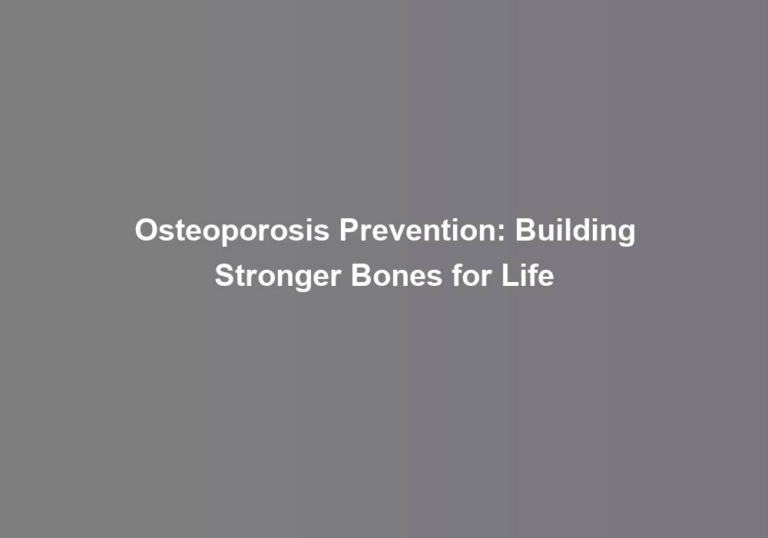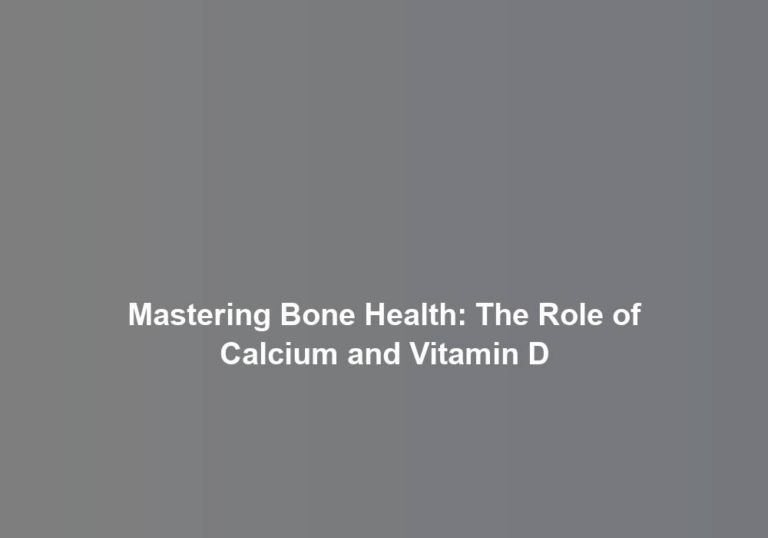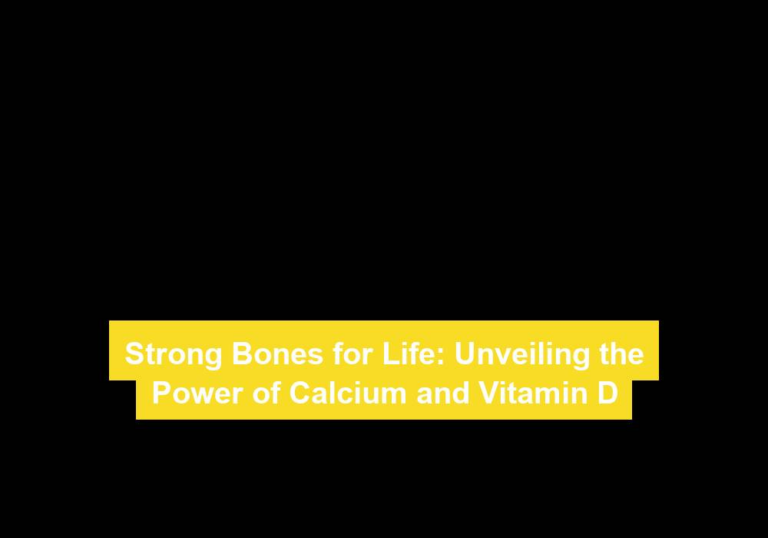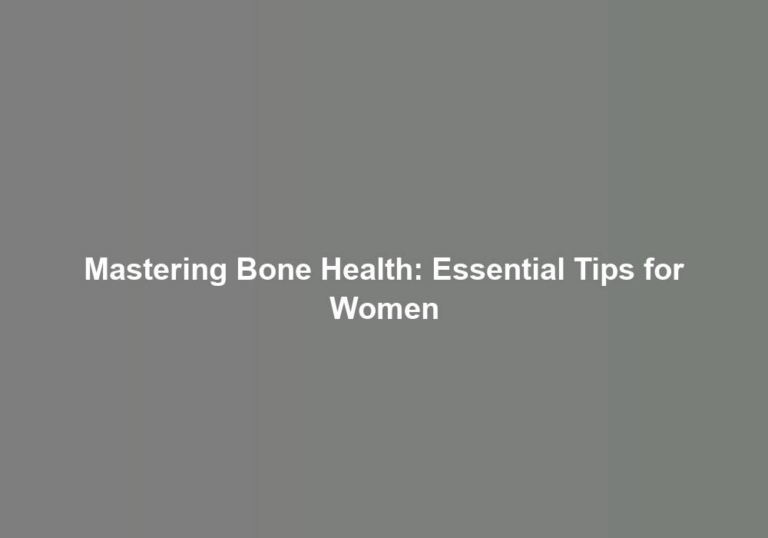Vital Nutrients: Calcium and Vitamin D in Bone Care
You may not be aware that calcium and vitamin D play a crucial role in maintaining bone health. But did you know that thereG??s more to their importance than just preventing fractures? Understanding how these vital nutrients work together in bone care is essential for overall well-being. As you explore the intricate relationship between calcium and vitamin D, you will uncover the key strategies to support your bone health and prevent potential complications.
The Importance of Calcium in Bone Health
In order to maintain strong and healthy bones, it is essential to ensure an adequate intake of calcium through your diet or supplements. Calcium plays a crucial role in maintaining bone density and strength. When you consume foods rich in calcium, your body absorbs this mineral in the small intestine. However, several factors can affect calcium absorption, such as the presence of other nutrients like vitamin D, the oxalate and phytate content of the food, and your bodyG??s individual needs.
To maximize calcium absorption, it is important to consume a variety of calcium-rich foods, such as dairy products, leafy greens, tofu, and fortified foods. Additionally, it is advisable to maintain an adequate intake of vitamin D, as it enhances the absorption of calcium in the gut. Regular exposure to sunlight and consuming vitamin D-rich foods or supplements can help meet your bodyG??s vitamin D requirements, further supporting calcium absorption and bone health.
ItG??s also important to note that a balanced diet isnG??t always enough to meet your bodyG??s calcium needs, especially for individuals with lactose intolerance or those following a vegan diet. In such cases, calcium supplements may be necessary to fill the gap and support overall bone health.
Functions of Vitamin D in Bone Care
Supporting your bone health, vitamin D plays a vital role in facilitating the absorption of calcium in your body. Here are some key functions of vitamin D in bone care:
-
Sun Exposure: Your body can produce vitamin D when your skin is exposed to sunlight. Spending time outdoors and allowing your skin to soak in the sunG??s rays can help maintain adequate levels of vitamin D, which is crucial for bone health.
-
Hormonal Regulation: Vitamin D helps in the regulation of hormones involved in bone metabolism. It assists in the balancing of calcium levels in your body, which is essential for maintaining strong and healthy bones.
-
Bone Density: Vitamin D plays a crucial role in maintaining bone density. It supports the process of bone mineralization, which is important for the formation of dense and strong bones.
-
Absorption of Calcium: Vitamin D enhances the absorption of calcium from the food you consume. This absorbed calcium is then utilized in the formation and maintenance of bone structure, aiding in preventing conditions such as osteoporosis.
Dietary Sources of Calcium and Vitamin D
Facilitating the absorption of calcium in your body, it is essential to understand the dietary sources of calcium and vitamin D to support your bone health. Calcium is abundantly found in dairy products such as milk, yogurt, and cheese. Additionally, green leafy vegetables like kale, broccoli, and collard greens are excellent sources of calcium. Fortified foods, including orange juice, cereals, and plant-based milk alternatives, can also contribute to your calcium intake. When it comes to vitamin D, your body naturally produces it when your skin is exposed to sunlight. However, it can also be obtained from dietary sources such as fatty fish (e.g., salmon, mackerel, and sardines), egg yolks, and fortified foods like breakfast cereals and some brands of orange juice.
Understanding the absorption mechanisms of these nutrients is crucial. Vitamin D plays a pivotal role in enhancing the absorption of calcium in the gut, ultimately aiding in the maintenance of strong and healthy bones. Without sufficient vitamin D, your body may struggle to absorb the necessary calcium from the foods you consume, potentially leading to weakened bones and an increased risk of fractures.
In cases where obtaining these nutrients from food sources is challenging, dietary supplements can be considered. Calcium and vitamin D supplements are widely available and can be beneficial for individuals who have dietary restrictions or limited sun exposure. It is important to consult with a healthcare professional before starting any new supplements to ensure they are suitable for your individual needs.
Recommended Intake for Bone Health
To support strong and healthy bones, it is important to understand the recommended intake of calcium and vitamin D for bone health. Both calcium and vitamin D play vital roles in maintaining bone density and strength. The recommended intake varies depending on age, sex, and other individual factors. Here are some important points to consider:
-
Daily Calcium Intake: The recommended daily intake of calcium for adults aged 19-50 is 1,000 mg. For adults over 50, the recommended intake increases to 1,200 mg. However, women over 50 and men over 70 may need even higher amounts of calcium.
-
Vitamin D Intake: It is recommended that adults up to age 70 get 600 IU of vitamin D daily, while those over 70 should aim for 800 IU. However, individuals with limited sun exposure or other risk factors for vitamin D deficiency may require higher doses.
-
Exercise Benefits: Engaging in weight-bearing and muscle-strengthening exercises can help maintain bone health and reduce the risk of fractures. Regular physical activity also supports overall bone density and strength.
-
Age-Related Changes: As you age, your bodyG??s ability to absorb calcium and vitamin D may decrease. This makes it even more important to ensure adequate intake of these nutrients through a balanced diet or supplements.
Understanding the recommended intake of calcium and vitamin D is crucial for maintaining bone health throughout your life. By incorporating these nutrients into your diet and lifestyle, you can support your bones and overall well-being.
Preventing Osteoporosis With Calcium and Vitamin D
Prevent osteoporosis and maintain strong bones by ensuring adequate intake of calcium and vitamin D through your diet and lifestyle choices. While getting these nutrients from food sources is ideal, supplements can also play a crucial role in preventing osteoporosis. Calcium and vitamin D supplements can be particularly beneficial for individuals who are unable to meet their nutritional needs through diet alone. When choosing supplements, opt for those that are easily absorbed, such as calcium citrate or vitamin D3.
In addition to supplements, incorporating regular exercise routines into your lifestyle is essential for preventing osteoporosis. Weight-bearing and muscle-strengthening exercises, such as walking, dancing, and resistance training, can help improve bone density and reduce the risk of fractures. Aim for at least 150 minutes of moderate-intensity aerobic activity each week, along with muscle-strengthening activities on two or more days a week.
Remember that a holistic approach is key to preventing osteoporosis. In addition to supplements and exercise, maintaining a healthy lifestyle that includes a balanced diet rich in calcium and vitamin D, avoiding smoking and excessive alcohol consumption, and getting regular sunlight exposure for natural vitamin D synthesis are all important factors in promoting bone health.
Conclusion
So, there you have it! Without calcium and vitamin D, your bones might as well be made of jelly! Make sure to get plenty of dairy, leafy greens, and sunlight to keep those bones strong and healthy. And donG??t forget to take your supplements if needed. Your bones will thank you for it!

